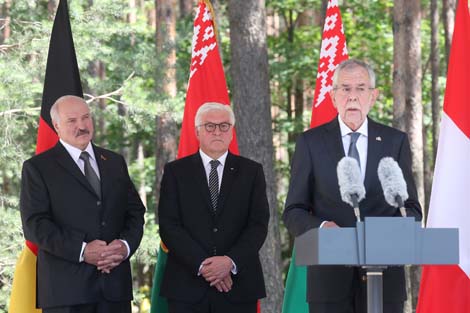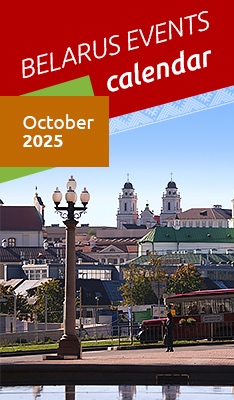Opinions & Interviews
Austrian president: Trostenets was blank spot for Western Europe too long

MINSK, 29 June (BelTA) – The history of Trostenets and its victims was a blank spot on the map of memory of Western Europe for too long, Austrian President Alexander Van der Bellen said at a commemorative ceremony at the site of the former death camp Trostenets on 29 June, BelTA has learned.
“People know about Auschwitz and this is important. However, Auschwitz often overshadows other places that are just as gruesome. If the names of concentration camps and death camps fall into oblivion, the memory of countless victims and mass extermination may fade away. Nazis established a network of terror that spread all over Europe. It is in our own interests to engrave these events in the collective memory of Europe as a warning,” Alexander Van der Bellen said.
“We are witnessing a watershed period when people who survived the biggest catastrophe of the 20th century are leaving us. When the last witnesses are gone, we should have places of memory that could speak for them. All the victims of the Nazi terror – be it Jews, communists or people murdered for other reasons - have one thing in common: all of them experienced severe persecution,” the Austrian president said.
Alexander Van der Bellen noted that Nazi Germany brought enormous suffering to Belarus and its people. However, Austria that became part of the German Reich in 1938 was, just like Germany, obsessed with ideas of National Socialism. “National Socialism in Austria and in Germany is part of every family history. This means that the majority of people experienced it in a varying degree. Some of them were accomplices in those crimes, others were victims. Sometimes members of the same family found themselves on opposite sides of the barricades,” he said.
The Austrian president noted that the postwar period marked a wait-and-see approach to the critical analysis of the National Socialism. It was not until three decades ago that we started gradually rethinking the past of the National Socialism, he noted. “Today Austria shares the responsibility for the crimes of National Socialism in which Austrians were also involved. This manifests itself in the overhaul of the Austrian exposition in Auschwitz that is currently underway. In general, the oblivion gave way to the growing will to remember and rethink,” Alexander Van der Bellen said.
He expressed hope that memorials like Trostenets will remind the generations to come about the value of peace and humanity. “Therefore I want us to pay tribute to the victims of Maly Trostenets with a feeling of a unifying hope. I want us, as the Declaration of the Stockholm International Forum on the Holocaust figuratively put it, to plant the seeds of a better future amidst the soil of a bitter past,” the Austrian president added.







 print version
print version make home page
make home page add to bookmarks
add to bookmarks

